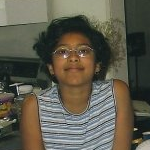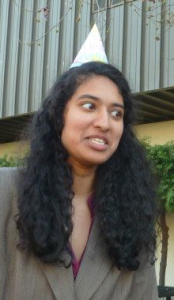Happy Halloween (a.k.a. my favorite holiday)! I was a “steampunk adventurer” this year at a festival, and it was great. Tonight I have work, but as my office is my house, I plan on dressing up and handing out candy during my breaks.
Halloween has a another special significance for many writers; it’s the day before NaNoWriMo, or National Novel Writing Month. The goal of NaNoWriMo is to write a 50,000-word novel in 30 days. I attempted this feat every year in high school, but to this day I have yet to finish a story within the deadline.
This isn’t to say I’ve never written a book before; when I was in eighth grade I wrote a full-length novel as my “exit project” from middle school. As someone who is notoriously private about sharing my fiction, I almost threw up before school the day I had to read an excerpt out loud in front of my class. But I did it, and a copy of that story likely still sits on the shelf in my former classroom.
Of course, I never did much more with that book. My parents were constantly badgering me to get it published, but I wasn’t happy with my work. It was great for an eighth-grader, but by my third read-through I was already unsatisfied with the quality. I’m a closet perfectionist, and I wanted only something I was extremely proud of published under my name.

And as the years went on I had more and more on my plate. In eighth grade, my extracurriculars consisted of thrice-weekly tae kwon do practice and accompanying my parents to grocery stores. I had a ridiculously large amount of time to spend reading and writing. But once I got into high school I joined speech & debate, water polo, and many other clubs. I had friends who lived within walking/biking distance. I still wrote fiction, but that took a back-seat to everything else.
But now that I’m out of school and have less of a social life, I feel the urge to once again write a full-length novel. I plan to participate in NaNoWriMo this year for the first time since my freshman year of college. And this time, I plan on winning.
But what am I planning on writing about? My last book was a work of fantasy. I’m still into that genre, but I was always captivated by the idea of the “Great American Novel.” Except I wanted to write the “Great Young Adult Novel.” I was tired of some of the stuff I picked up in the Young Adult (YA) section of the library. Don’t get me wrong, there are so many great YA books out there. Most of my favorite books are YA. (Harry Potter anyone?) But so many have the same basic storyline; the only difference is location and character names. And don’t even get me started on Twilight, which I read against my better instincts. Some friends told me it was amazing. (Spoiler alert: it wasn’t.)
Unoriginal YA aside, I’m also really into representation and diversity in books/media. I don’t think you have to be the same race or in the same situation as a character to relate to them. But let me be clear: that’s not an excuse to avoid featuring people of color as main characters in books or in movies. I spent years thinking I couldn’t be an actor because of my skin tone. After all, as a child, the only characters I saw on TV that looked like me tended to be guest stars with horrible fake accents who were made fun of by the main, white characters. I don’t want other brown and black kids to feel like they can’t be the main character because they aren’t white.
If you don’t believe me when I say representation matters, look at the case of Whoopi Goldberg. She was inspired to start her career by seeing Nichelle Nichols playing Uhura on Star Trek when she was young. Do you know how much we would’ve missed out on if Goldberg hadn’t been watching Nichols, a black woman, play an iconic character on Star Trek? She wouldn’t have been in The Color Purple, Ghost, or Sister Act. (Let’s be real, my childhood would have been so much worse without Sister Act.) And Goldberg is just one example of a kid inspired by seeing someone who looked like them on TV.
These days, I see more brown people on TV. Not enough, but more. I’ve also exposed myself to writing by more great brown women writers (Randa Jarrar, Jhumpa Lahiri, Mohja Kahf, to name a few). But I’m tired of their books being part of a niche market.
People of color exist in books, but as main characters they’re not as mainstream as I would like. And books featuring characters from marginalized groups (LGBT+ characters, disabled characters, characters of color, etc.) tend to be all about how the main character is, for example, transgender, rather than having a storyline that incorporates the character’s identity into a larger storyline. Stories can be about more than a character’s so-called “defining” characteristic.
I don’t want every book about a teenage girl of Indian descent living in the United States to be about how she rebels against her parents wanting her to get good grades and have an arranged marriage. Because, sure, my parents wanted me to get good grades, but that wasn’t their main focus. And they’ve never, ever said they want me to get an arranged marriage.
These days I’ve grown out of the idea of there being one “Great YA Novel,” but I haven’t lost hope that one day white/straight won’t be the defaults. It shouldn’t be revolutionary that a main character can be brown/black, queer, and chronically ill, but that the story is about going on a quest and saving the world.
With that, I should really be going. This brown girl has her own quest to go on; there are 50,000 words she has to write, after all.
Images: Pexels, Maya Parthasarathy





